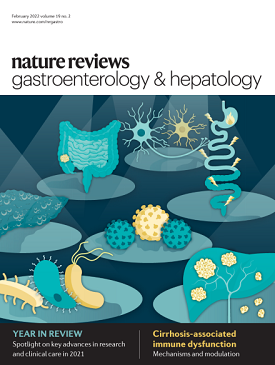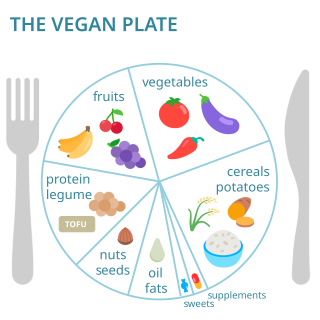
Parenteral nutrition (PN) is the feeding of nutritional products to a person intravenously, bypassing the usual process of eating and digestion. The products are made by pharmaceutical compounding companies. The person receives a nutritional mix according to a formula including glucose, salts, amino acids, lipids and vitamins and dietary minerals. It is called total parenteral nutrition (TPN) or total nutrient admixture (TNA) when no significant nutrition is obtained by other routes, and partial parenteral nutrition (PPN) when nutrition is also partially enteric. It is called peripheral parenteral nutrition (PPN) when administered through vein access in a limb rather than through a central vein as central venous nutrition (CVN).
Cyclic vomiting syndrome (CVS) is a chronic functional condition of unknown pathogenesis. CVS is characterized as recurring episodes lasting a single day to multiple weeks. Each episode is divided into four phases: inter-episodic, prodrome, vomiting, and recovery. Inter-episodic phase, is characterized as no discernible symptoms, normal everyday activities can occur, and this phase typically lasts one week to one month. The prodrome phase is known as the pre-emetic phase, characterized by the initial feeling of an approaching episode, still able to keep down oral medication. Emetic or vomiting phase is characterized as intense persistent nausea, and repeated vomiting typically lasting hours to days. Recovery phase is typically the phase where vomiting ceases, nausea diminishes or is absent, and appetite returns. This syndrome is most commonly seen in children usually between ages 3 and 7, however adult diagnosis is quite common. This disorder is thought to be closely related to migraines and family history of migraines.

Nature Reviews Gastroenterology & Hepatology is a peer-reviewed medical journal published by Nature Portfolio. It was established in 2004 as Nature Clinical Practice Gastroenterology & Hepatology and obtained its current title in April 2009. The editor-in-chief is Katrina Ray.

Intestinal pseudo-obstruction (IPO) is a clinical syndrome caused by severe impairment in the ability of the intestines to push food through. It is characterized by the signs and symptoms of intestinal obstruction without any lesion in the intestinal lumen. Clinical features mimic those seen with mechanical intestinal obstructions and can include abdominal pain, nausea, abdominal distension, vomiting, dysphagia and constipation depending upon the part of the gastrointestinal tract involved.
Neonatal cholestasis refers to elevated levels of conjugated bilirubin identified in newborn infants within the first few months of life. Conjugated hyperbilirubinemia is clinically defined as >20% of total serum bilirubin or conjugated bilirubin concentration greater than 1.0 mg/dL regardless of total serum bilirubin concentration. The differential diagnosis for neonatal cholestasis can vary extensively. However, the underlying disease pathology is caused by improper transport and/or defects in excretion of bile from hepatocytes leading to an accumulation of conjugated bilirubin in the body. Generally, symptoms associated with neonatal cholestasis can vary based on the underlying cause of the disease. However, most infants affected will present with jaundice, scleral icterus, failure to thrive, acholic or pale stools, and dark urine.

Non-alcoholic fatty liver disease (NAFLD), also known as metabolic (dysfunction) associated fatty liver disease (MAFLD), is excessive fat build-up in the liver without another clear cause such as alcohol use. There are two types; non-alcoholic fatty liver (NAFL) and non-alcoholic steatohepatitis (NASH), with the latter also including liver inflammation. Non-alcoholic fatty liver is less dangerous than NASH and usually does not progress to NASH. When NAFL does progress to NASH, it may eventually lead to complications such as cirrhosis, liver cancer, liver failure, or cardiovascular disease.
The British Society of Gastroenterology (BSG) is a British professional organisation of gastroenterologists, surgeons, pathologists, radiologists, scientists, nurses, dietitians and others amongst its members, which number over 3,000. It was founded in 1937, and is a registered charity. Its offices are in Regent's Park, London.
William J. Klish is a Professor Emeritus of Pediatrics, Gastroenterology, Hepatology and Nutrition at Baylor College of Medicine. Klish was educated at the University of Wisconsin–Eau Claire and the University of Wisconsin–Madison. Klish is a past president of the North American Society for Pediatric Gastroenterology and Nutrition. He currently directs the obesity center at the Texas Children's Hospital that he developed. Klish is credited with having helped develop pediatric gastroenterology as a field, and he has won numerous awards for his work. He was the first person to be credentialed in pediatric gastroenterology by the American Board of Pediatrics. Klish played a role in the popular documentary Super Size Me created by Morgan Spurlock, monitoring Spurlock's health as he binged on fast food.

Vegan nutrition refers to the nutritional and human health aspects of vegan diets. A well-planned, balanced vegan diet is suitable to meet all recommendations for nutrients in every stage of human life. Vegan diets tend to be higher in dietary fiber, magnesium, folic acid, vitamin C, vitamin E, iron, and phytochemicals; and lower in calories, saturated fat, cholesterol, long-chain omega-3 fatty acids, vitamin D, calcium, zinc, and vitamin B12.
FODMAPs or fermentable oligosaccharides, disaccharides, monosaccharides, and polyols are short-chain carbohydrates that are poorly absorbed in the small intestine and are prone to absorb water and ferment in the colon. They include short-chain oligosaccharide polymers of fructose (fructans) and galactooligosaccharides, disaccharides (lactose), monosaccharides (fructose), and sugar alcohols (polyols), such as sorbitol, mannitol, xylitol, and maltitol. Most FODMAPs are naturally present in food and the human diet, but the polyols may be added artificially in commercially prepared foods and beverages.
Pediatric gastroenterology developed as a sub-specialty of pediatrics and gastroenterology. It is concerned with treating the gastrointestinal tract, liver and pancreas of children from infancy until age eighteen. The principal diseases it is concerned with are acute diarrhea, persistent vomiting, gastritis, and problems with the development of the gastric tract.

Alessio Fasano is an Italian-born medical doctor, pediatric gastroenterologist and researcher. He currently holds many roles, including professor of pediatrics at Harvard Medical School and professor of nutrition at Harvard T.H. Chan School of Public Health, both in Boston. He serves as director of the Center for Celiac Research and Treatment at MassGeneral Hospital for Children (MGHfC) and co-director of the Harvard Medical School Celiac Research Program. In addition, he is director of the Mucosal Immunology and Biology Research Center at MGHfC, where he oversees a research program with approximately 50 scientists and staff researching a variety of acute and chronic inflammatory diseases, including cystic fibrosis, celiac disease, enteric infections and necrotizing enterocolitis. A common theme of these programs is the study of the emerging role of the gut microbiome in health and disease. Fasano is also the scientific director of the European Biomedical Research Institute of Salerno (EBRIS) in Italy. Along with these leadership positions, he is a practicing outpatient clinician in pediatric gastroenterology and nutrition and the division chief.
Badri Nath Tandon is an Indian gastroenterologist, hepatologist, medical researcher and academic, and the Chairman and Senior Consultant of Gastroenterology, at Metro Hospitals and Heart Institute, Noida. He is a former Professor and Head of Department of Gastroenterology and Human Nutrition Unit at the All India Institute of Medical Sciences, Delhi (AIIMS) and a former Director and Senior Consultant of Hepatology and Gastroenterology at Pushpawati Singhania Research Institute for Liver, Renal and Digestive Diseases, New Delhi. He is a recipient of several awards including Sasakawa WHO Health Prize and Jubilee Medal of the RAMS. The Government of India awarded him the third highest civilian honour of the Padma Bhushan, in 1986, for his contributions to medicine.
Shinjini Bhatnagar is an Indian pediatric gastroenterologist. She is elected as Fellow of National Academy of Sciences. Her research was recognised by the World Health Organization (WHO), and at 2nd World Congress of Pediatric Gastroenterology, Hepatology & Nutrition. She was awarded the Dr. ST Achar Gold Medal Award for Research in Child Health, and Hotam Tomar Gold Medal in recognition of her research in Pediatric Gastroenterology.
Ibrahim Mohamed Fayad was an Egyptian senior pediatrician and a Professor of Pediatrics at Kasr Al Aini School of Medicine, Cairo University.
AME Publishing Company is an academic publishing company, which publishes medical journals and books. Founded in July 2009, it is currently headquartered in Hong Kong, with additional offices in Guangzhou, Changsha, Nanjing, Shanghai, Chengdu, Beijing, Taipei, and Hangzhou. Its name stands for "Academic Made Easy/Excellent/Enthusiastic". It has published over 50 medical journals, as well as 20 English-language books, 28 Chinese-language books, and 60 e-books.
A low-FODMAP diet is a person's global restriction of consumption of all fermentable carbohydrates (FODMAPs), recommended only for a short time. A low-FODMAP diet is recommended for managing patients with irritable bowel syndrome (IBS) and can reduce digestive symptoms of IBS including bloating and flatulence.

Maria M. Oliva-Hemker is a Cuban-American pediatrician. She is the Stermer Family Professor of Pediatric Inflammatory Bowel Disease (IBD), Director of the Division of Pediatric Gastroenterology, Hepatology and Nutrition and Vice Dean for Faculty at the Johns Hopkins University School of Medicine.
The National Board of Physician Nutrition Specialists (NBPNS) is a nonprofit organization that certifies physicians practicing nutrition medicine. Established in 1997, NBPNS maintains credentialing standards, examination assessments, and offers certification for physician nutrition specialists. Eligibility requires completion of a recognized nutrition fellowship program, sufficient continuing medical education (CME), or comparable training. The NBPNS is affiliated with the American Society for Nutrition. Member societies include: the American Society for Parenteral and Enteral Nutrition, the American Association of Clinical Endocrinologists, American Society for Clinical Nutrition, North American Association for the Study of Obesity, American College of Nutrition, American Gastroenterological Association, and the Canadian Society for Clinical Nutrition.
Deirdre Kelly is an Irish clinician, academic, and author. She is Professor of Paediatric Hepatology at the University of Birmingham and Clinical Lead for National Paediatric Hepatitis C Operational Delivery Network. She chairs the Board of Pension Trustees at the General Medical Council and is a non-executive director at NHS Blood and Transplant.






